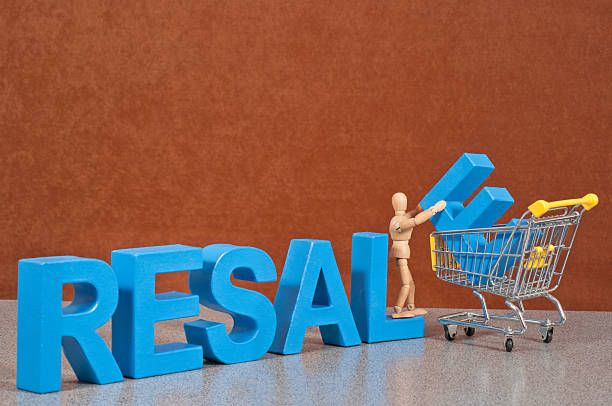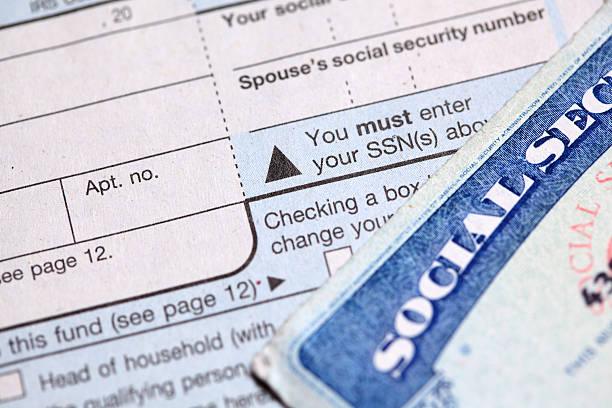As a business owner, you may have heard about resale certificates, but may not be entirely sure what they are or how they work.
Resale certificates are important documents that allow businesses to avoid paying sales tax on purchases that will be resold to customers. Understanding how resale certificates work and when they should be used is essential for any business owner who wants to save money on their purchases.
In this guide, we will cover everything you need to know about resale certificates, including what they are, how they work, and when they should be used.
What is a Resale Certificate?
A resale certificate is a document that allows a business to make purchases without paying sales tax. When a business purchases goods that it plans to resell to customers, it is not required to pay sales tax on those goods. Instead, the business collects sales tax from the customer when the goods are sold.
The resale certificate is used as proof that the goods were purchased for resale, and not for the business’s own use. The certificate includes information about the business, such as its name and address, as well as the type of business it is and its tax identification number. It also includes information about the purchaser, such as their name and address.
How Resale Certificates Work
Resale certificates work by allowing businesses to purchase goods without paying sales tax, as long as those goods will be resold to customers. The business provides the seller with a resale certificate, which indicates that the goods are being purchased for resale. The seller then does not charge the business sales tax on the purchase.
When the business resells the goods to its customers, it collects sales tax from them. The sales tax collected is then remitted to the state or local government. This allows the business to avoid paying sales tax twice on the same goods, once when they purchase them and again when they sell them.
When Should Resale Certificates be Used?
Resale certificates should be used whenever a business is purchasing goods that it plans to resell to customers. This includes both tangible goods, such as clothing or electronics, and digital goods, such as software or e-books.
Resale certificates should not be used for purchases that are not for resale. For example, if a business purchases office supplies for its own use, it cannot use a resale certificate to avoid paying sales tax on those supplies.
It is important to note that different states have different rules about when resale certificates can be used. Some states require that the business be registered with the state as a reseller, while others do not.
Additionally, some states require that the resale certificate be renewed annually, while others do not. Business owners should familiarize themselves with the rules in their state to ensure that they are using resale certificates correctly.
How to Obtain a Resale Certificate
To obtain a resale certificate, a business must first register with the state in which it operates. This typically involves filling out an application and providing information about the business, such as its name, address, and tax identification number.
Once the business is registered, it can apply for a resale certificate. The application typically requires the business to provide information about the types of goods it plans to resell and the locations where it will be making purchases.
Once the application is approved, the business will receive a resale certificate that can be presented to sellers when making purchases. It is important to keep the resale certificate up-to-date and renew it as required by the state.
Tips for Using Resale Certificates
While using a resale certificate can be beneficial for businesses, it’s important to use them correctly to avoid any issues with state tax authorities. Here are some tips for using resale certificates effectively:
Understand State Tax Laws
Before using a resale certificate, it’s important to understand the state tax laws in the states where the business operates. Each state has its own rules and regulations regarding resale certificates, so it’s important to do the research and understand the requirements.
Keep Accurate Records
It’s important for businesses to keep accurate records of all purchases and sales. This includes keeping copies of all resale certificates and documenting all sales made using those certificates. This will help businesses stay organized and be prepared in case of an audit.
Renew Certificates Regularly
Resale certificates may need to be renewed periodically depending on the state. Businesses should make sure to keep track of when their certificates expire and renew them as needed.
Use Certificates Only for Resale Purchases
Resale certificates should only be used for purchases that will be resold to customers. Using them for personal purchases or purchases that will not be resold can result in penalties and fines.
Provide Certificates to Suppliers in Advance
When making purchases using a resale certificate, it’s important to provide the certificate to the supplier in advance. This will give them time to verify the certificate and ensure that they are not charging sales tax on the purchase.
Keep Track of Exemptions
Some states allow for exemptions on certain types of goods or services, such as manufacturing equipment or software. Businesses should keep track of these exemptions and use them when applicable to further reduce their tax burden.
Be Aware of Limitations
While resale certificates can be a valuable tool for businesses, they do have limitations. For example, they typically cannot be used for purchases that will be used or consumed by the business, such as office supplies or equipment. It’s important to be aware of these limitations and use resale certificates only for eligible purchases.
Train Employees on Proper Use
Businesses should make sure that all employees who handle purchasing or sales are properly trained on how to use resale certificates. This will help ensure that the certificates are used correctly and that the business remains in compliance with state tax laws.
Stay Up-to-Date on Changes
State tax laws and regulations can change frequently, so it’s important for businesses to stay up-to-date on any changes that may impact the use of resale certificates. This can be done by regularly checking state tax websites or consulting with a tax professional.
Keep a Checklist
To ensure that resale certificates are being used effectively and in compliance with state tax laws, businesses may find it helpful to create a checklist or process document outlining the steps for using a resale certificate. This can help ensure consistency and minimize errors.
Related: Which States Do Not Allow to Accept Out-of-State Resale Certificates
Benefits of Using Resale Certificates
Now that we know what a resale certificate is, let’s explore the benefits of using them.
Savings on Sales Tax
The most obvious benefit of using a resale certificate is that it allows businesses to avoid paying sales tax on purchases that will be resold to customers. Depending on the state and local tax rates, this can result in significant savings over time.
For example, let’s say a retailer purchases $10,000 worth of merchandise from a wholesaler. If the sales tax rate is 8%, they would normally have to pay $800 in sales tax on that purchase. However, if they provide a resale certificate, they can avoid paying that sales tax and save $800.
Over time, these savings can really add up. For businesses that make frequent purchases of goods for resale, using a resale certificate can result in significant cost savings.
Avoid Issues with State Tax Authorities
Using a resale certificate correctly can also help businesses avoid issues with state tax authorities. In some states, businesses that do not use resale certificates correctly or fail to keep accurate records of their purchases and sales can face penalties and fines.
For example, if a retailer is audited and is unable to provide a valid resale certificate for a purchase that was made, they could be fined for failing to pay the appropriate sales tax. This can be a costly mistake that could have been avoided by simply using a resale certificate correctly.
By using a resale certificate correctly and keeping accurate records of all purchases and sales, businesses can ensure that they are complying with state tax laws and avoid any penalties or fines.
Streamline the Purchasing Process
Another benefit of using resale certificates is that they can help streamline the purchasing process. When a business provides a resale certificate, the seller knows that the goods being purchased will be resold and therefore should not be charged sales tax.
This can save time and hassle during the purchasing process. The seller does not have to calculate the appropriate sales tax or issue a refund later on, and the purchaser does not have to pay the sales tax upfront and then wait for a refund.
Build Stronger Relationships with Suppliers
Using a resale certificate can also help businesses build stronger relationships with their suppliers. By using the certificate correctly, businesses can demonstrate that they are knowledgeable about state tax laws and are committed to following them.
This can help build trust with suppliers and may lead to better pricing or more favorable terms in the future. Suppliers may be more willing to work with businesses that are knowledgeable and compliant with state tax laws, as it reduces their risk of running into issues with state tax authorities as well.
Flexibility in Reselling Goods
Using a resale certificate also gives businesses flexibility in reselling goods. By not paying sales tax upfront, businesses can sell goods at a lower price and still make a profit. This can be especially helpful when competing with other businesses that may not be using resale certificates and therefore have higher costs.
Additionally, using a resale certificate allows businesses to resell goods across state lines more easily. In some cases, businesses may be able to use a resale certificate from one state to purchase goods that will be resold in another state. This can make it easier for businesses to expand their operations and sell to customers in different regions.
Conclusion
Resale certificates are an important tool for businesses that purchase goods for resale.
By allowing businesses to avoid paying sales tax on those purchases, they can result in significant savings over time. However, it is important to use resale certificates correctly and comply with state tax laws to avoid any issues with state tax authorities.
If you are a business owner who is considering using a resale certificate, it is important to familiarize yourself with the rules in your state and keep accurate records of all purchases and sales.
By doing so, you can ensure that you are using the certificate correctly and avoid any issues with state tax authorities.



